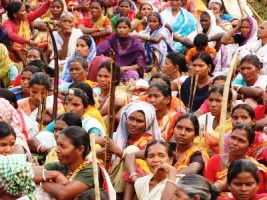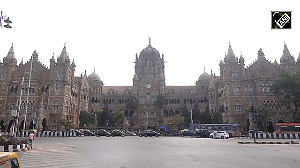 The Sentinelese tribe in the Andamans is known for its fierce attempts to avoid contact with the outside world, while the Amazon rainforest still has 44 isolated tribes. But not all tribes are inhospitable.
The Sentinelese tribe in the Andamans is known for its fierce attempts to avoid contact with the outside world, while the Amazon rainforest still has 44 isolated tribes. But not all tribes are inhospitable.
Tour operators are recognising the enhanced tourist interest in this segment and offering tour packages -- to Malaysia and Kenya, for instance -- that give a chance to interact with the tribes.
Though the tribes have long given up their hunter-gatherer lives, they still celebrate their culture with pride.
Ezeego1.com is now offering tourists an opportunity to interact with them.
Neelu Singh, COO, Ezeego1.com, said: "The Malaysian package was introduced recently after seeing the rising interest of people for such tours.
"The rainforests, villages, etc, in Malaysia are quite unique and unexplored, while in Kenya, the Masai tribes are renowned for their distinctive culture, traditions and dressing."
Ezeego1.com's tour to Kenya offers a trip through the village of the Masai tribe. In Malaysia, tourists can visit villages of the Orang Asli and Iban people, while savouring their unique delicacies.
The Malaysian package currently isn't available in India, while the Kenyan package can be booked.
"The aboriginal tour includes a boat ride from the Banding island on the Temenggor Lake to villages where one can mix with the Orang Asli people.
The Orang Asli are the Jahai and Temiar people of the aboriginal ethnic tribes of peninsular Malaysia. One can interact and see the life of the tribals. In Kenya, one can interact with the Masai tribes, and even dance and sing with them. They are very friendly," said Singh.
The Kenyan package costs Rs 1,10,792 per person on a twin-sharing basis, while the Malaysian package costs Rs 62,934 per person on a twin-sharing basis (without air fare).
The cost of return air fare from Mumbai to Kuala Lumpur is Rs 17,993.
A visit to the Iban village includes staying in a loghouse in the village, where travelers have the opportunity of joining the natives in their daily chores, learning their traditional dance form, Ngajat, a graceful warrior's dance, and purchasing their handicrafts directly.
A locally prepared meal can also be savoured and the Iban dinner menu includes bamboo shoots, jungle ferns, cucumber leaves and so on, with rice.
Ezeego1.com says it has tried to ensure the interactions benefit the tribes and the aboriginal people. "The tourists, while visiting the villages, buy local handicrafts, which helps the economy of the tribals and enhances their purchasing power.
The Masai also sell locally produced items like sisal baskets, elephant hair bracelets (not the real elephant hair), Masai bead jewellery, tribal masks, Masai figurines, etc, which helps them in their livelihood," said Singh.
The experience is mutually enhancing.
"The response from tourists as well as the tribes has been good so far. Tourists love to interact and experience the lifestyle of the natives, while the tribes have been very supportive about the visits, the local family lunch, etc," said Singh.
However, the experience remains popular only with a niche segment. "There are quite a few people who like adventure and opt for these packages. Masai tribes are famous across the world and they alone attract a lot of tourists to Kenya each year. Usually, couples opt for such tours,"said Singh.
Though the market is niche, it has been growing at 10 per cent year on year, partly thanks to the marketing efforts of Ezeego1.com.
"We have a database of past customers who always call us for unique experiences and we share our products with them. We also send e-mailers to the targeted group," said Singh.








 © 2025
© 2025